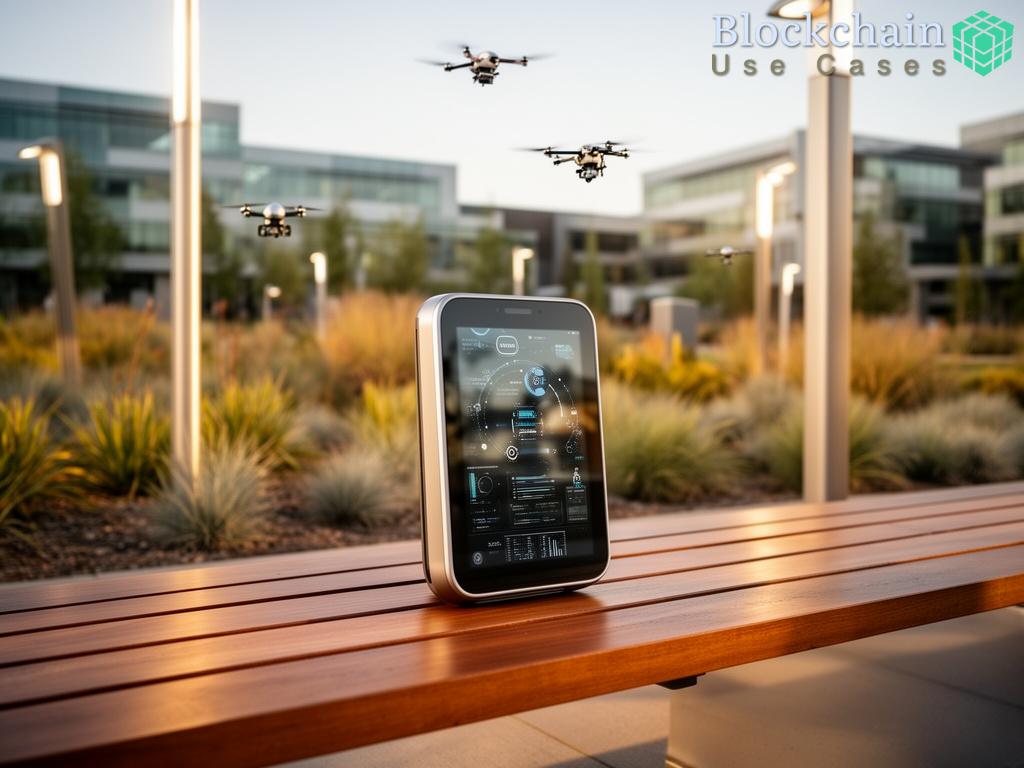Enhancing Supply Chain Transparency with Blockchain
In an era where efficiency and transparency are paramount, blockchain technology emerges as a revolutionary force for the logistics and fleet management sectors. By utilizing a decentralized ledger, organizations can achieve unprecedented levels of visibility in their supply chains. This transformation not only enhances operational efficiency but also fosters trust among stakeholders.
One of the most compelling advantages of blockchain technology is its ability to create immutable records of transactions. Each entry in the blockchain is encrypted and linked to previous entries, forming a chain that is exceptionally difficult to alter. This characteristic ensures that all data regarding shipments, deliveries, and transactions remain accurate and trustworthy. As a result, parties involved in the supply chain can have confidence in the information they receive.
Blockchain enables real-time tracking of goods throughout their journey. By integrating IoT devices with blockchain technology, companies can access detailed information about their assets at any given time. This synergy provides logistics managers with insights into the condition and location of products, allowing for proactive decision-making. The reduction of delays and increased responsiveness in addressing issues leads to streamlined operations and enhanced customer satisfaction.
Implementing blockchain technology in logistics not only strengthens supply chain transparency but also delivers a variety of other benefits. Below is a list of key advantages:
- Enhanced Traceability: Every transaction can be traced back to its source, making it easier to identify issues and ensure compliance.
- Cost Reduction: By minimizing paperwork and manual processes, companies can significantly reduce operational costs.
- Increased Collaboration: Blockchain fosters a collaborative environment among stakeholders, facilitating smoother interactions and communication.
- Fraud Prevention: The security features of blockchain help prevent fraud and unauthorized access to sensitive data.
- Improved Inventory Management: Real-time data enables better forecasting and inventory control, reducing waste and stockouts.
IoT Integration: Real-Time Data Acquisition and Analysis
In the rapidly evolving landscape of logistics and fleet management, the integration of IoT devices with blockchain technology is not just a trend; it is a necessity. This powerful combination has the potential to revolutionize how businesses acquire and analyze data in real-time, creating a more efficient and transparent supply chain ecosystem. By harnessing the capabilities of IoT, companies can capture vast amounts of data from various sources, which can then be securely recorded on a blockchain for enhanced visibility and accuracy.
Data Collection at Every Step is a significant advantage that IoT devices bring to logistics. Sensors and tracking devices can monitor everything from temperature and humidity to location and movement. This data is invaluable for maintaining the integrity of shipments, especially for sensitive goods such as pharmaceuticals or perishable items. The real-time acquisition of information means that logistics managers can respond swiftly to any anomalies or disruptions, ensuring that operations remain smooth and efficient.
Moreover, the ability to analyze this data in real time allows organizations to make informed decisions that can significantly enhance operational efficiencies. For instance, predictive analytics can be employed to forecast demand, optimize routes, and manage inventory levels more effectively. By analyzing patterns within the data collected, companies can identify potential bottlenecks before they escalate into costly issues, ultimately leading to enhanced customer satisfaction.
| Aspect | IoT Integration | Blockchain Benefits |
|---|---|---|
| Data Accuracy | Real-time sensor data provides immediate insights. | Immutable records ensure data integrity. |
| Response Time | Instant alerts for anomalies lead to quick action. | Decentralized verification reduces delays. |
| Operational Efficiency | Optimized routing and scheduling. | Streamlined documentation and reduced fraud. |
Furthermore, this synergy between IoT and blockchain fosters a culture of collaboration among all stakeholders. By providing a single source of truth, companies can share data securely and transparently, enhancing trust and accountability across the supply chain. This collaborative approach not only minimizes miscommunication but also facilitates smoother transactions and interactions among all parties involved.
In summary, the integration of IoT devices for real-time data acquisition and analysis, combined with the secure and transparent nature of blockchain technology, is reshaping how logistics and fleet management operate. This powerful combination not only enhances operational efficiencies but also builds a foundation of trust among stakeholders, paving the way for a more resilient and responsive supply chain.
Smart Contracts in Fleet Management: Automating Logistics Processes
The logistics and fleet management sectors are on the brink of a transformative shift, driven by the integration of blockchain technology and IoT devices. One of the most promising advancements in this domain is the implementation of smart contracts. These self-executing contracts with the terms of the agreement directly written into code not only streamline processes but also enhance transparency and accountability across the supply chain.
Smart contracts automate various logistics processes, reducing the need for manual intervention and minimizing the potential for human error. When specific conditions are met—such as the arrival of a shipment at its destination—the smart contract automatically triggers the next steps, whether it be payment processing, inventory updates, or notifying relevant stakeholders. This level of automation not only accelerates operations but also enhances overall efficiency.
By leveraging blockchain technology, smart contracts provide an immutable record of all transactions and agreements. This transparency is crucial in the logistics sector, where trust among stakeholders is paramount. Each party can independently verify the terms and execution of the contract, ensuring that all actions are aligned with agreed-upon standards. As a result, disputes can be minimized, and accountability is reinforced.
Implementing smart contracts comes with a host of benefits that can significantly impact logistics operations. Below are some of the key advantages:
- Efficiency Gains: Streamlined processes reduce delays and enhance productivity.
- Cost Savings: Automation reduces labor costs and minimizes errors associated with manual oversight.
- Real-time Visibility: Stakeholders gain immediate access to the status of shipments and transactions.
- Improved Compliance: Automated compliance checks ensure adherence to regulations and standards.
In summary, the utilization of smart contracts within blockchain-enabled logistics and fleet management fosters a more efficient, transparent, and trustworthy environment. This innovative approach not only revolutionizes how agreements are executed but also sets the foundation for a more resilient supply chain ecosystem.
Security and Data Integrity in IoT Logistics Solutions
As logistics and fleet management continue to embrace the potential of IoT technology combined with blockchain, the importance of security and data integrity in these solutions becomes increasingly critical. In a world where data breaches and cyber threats are rampant, ensuring that the integrity of sensitive information remains intact is paramount for maintaining trust among stakeholders. The integration of blockchain provides a robust framework that addresses these concerns, ultimately paving the way for safer and more reliable logistics operations.
In the realm of IoT logistics, data is constantly being generated from various sources, including sensors, tracking devices, and vehicles. This influx of information, while beneficial for operational efficiency, also presents significant vulnerabilities. However, when paired with blockchain technology, businesses can leverage cryptographic techniques to secure data transmissions and storage. Each transaction recorded on the blockchain is encrypted and linked to previous entries, creating a secure chain that is virtually tamper-proof. This characteristic is crucial for protecting the data integrity of shipment statuses, environmental conditions, and other critical metrics.
The integration of blockchain within IoT logistics solutions enhances the authenticity and traceability of data. Every entry made on the blockchain is timestamped and immutably recorded, allowing stakeholders to verify the origin and history of the data they receive. For example, if a shipment of temperature-sensitive pharmaceuticals is tracked, blockchain ensures that any alterations or discrepancies in the recorded conditions can be immediately identified. This level of transparency not only reinforces trust but also facilitates compliance with regulatory standards, as every transaction can be easily audited.
Furthermore, the combination of IoT and blockchain technology plays a significant role in risk mitigation. By enabling real-time monitoring of assets, companies can detect anomalies or potential threats as they arise. For instance, if a vehicle deviates from its intended route, an alert can be generated, prompting immediate investigation. This proactive approach helps in addressing issues before they escalate into major disruptions. Additionally, the decentralized nature of blockchain ensures that even in the event of a cyber attack, data remains securely stored and accessible, thus enhancing the overall resilience of logistics operations.
In summary, the fusion of IoT technology with blockchain not only fortifies the security and integrity of logistics data but also transforms the operational landscape of fleet management. By embracing these advanced solutions, organizations can foster greater trust, ensure compliance, and ultimately enhance the efficiency of their supply chain processes.
Challenges and Future Trends in Blockchain-Enabled Logistics
The fusion of blockchain technology with IoT-enabled logistics presents numerous opportunities for enhanced transparency and efficiency. However, various challenges must be addressed for organizations to fully capitalize on these advantages. As the industry continues to evolve, understanding these obstacles and recognizing emerging trends will be essential for companies aiming to thrive in a competitive landscape.
One of the primary challenges faced by businesses is the complexity of integrating blockchain technology with existing logistics systems. Many organizations rely on legacy systems that may not be compatible with blockchain solutions. This lack of interoperability can lead to substantial implementation costs and extended timelines. Additionally, the skills gap in the workforce poses another significant barrier, as professionals trained in blockchain and IoT technologies remain in short supply. To navigate these hurdles, companies must invest in training and education, as well as seek partnerships with technology providers who can facilitate a smoother transition.
The ever-evolving regulatory landscape surrounding data privacy and security presents another layer of complexity for blockchain-enabled logistics. Organizations must stay abreast of regulations that govern the use of blockchain and IoT technologies, ensuring compliance while maintaining operational efficiency. Moreover, as the reliance on interconnected devices increases, so does the risk of cyber threats. Protecting sensitive data is paramount, necessitating advanced security measures and continuous monitoring to prevent breaches. The integration of robust security protocols, including end-to-end encryption and multi-factor authentication, will be crucial in safeguarding data integrity and maintaining stakeholder trust.
Despite these challenges, the future of blockchain-enabled logistics is ripe with potential. Emerging trends suggest a shift towards greater automation and artificial intelligence integration, allowing businesses to harness predictive analytics for improved decision-making. As smart contracts become more prevalent, organizations can expect increased operational efficiency and reduced costs through automated processes. Furthermore, advancements in interoperability standards will foster collaboration among various stakeholders, creating a cohesive ecosystem where data is seamlessly shared and accessed. As the logistics landscape evolves, companies that embrace these innovations will not only enhance their operational capabilities but also gain a competitive edge in the market.




